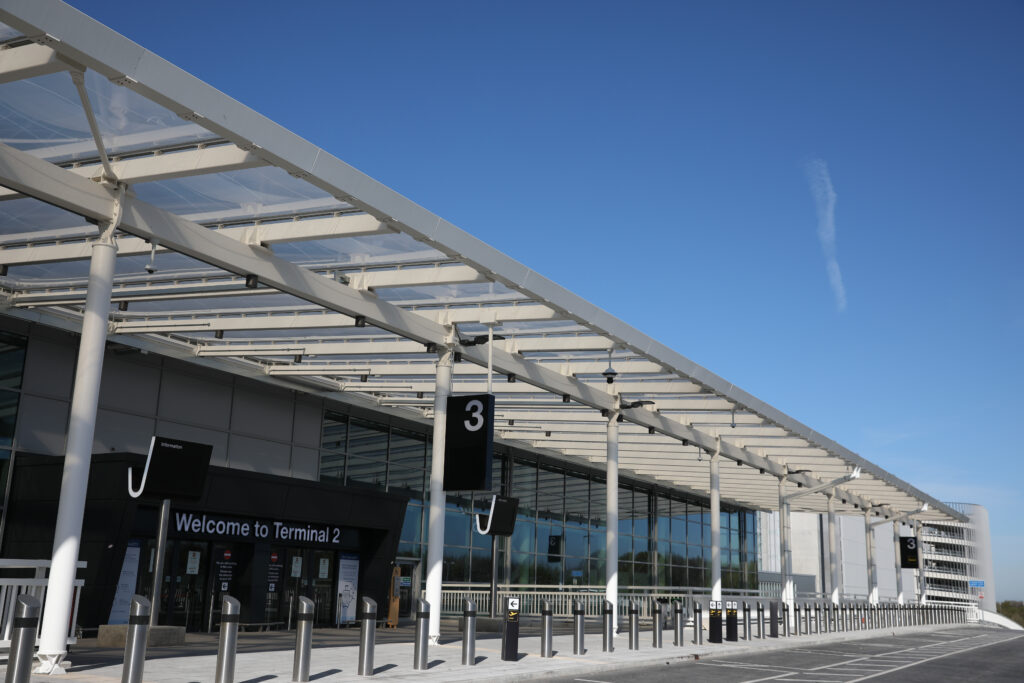Manchester Airports Group (MAG) has announced that it will provide passengers at all three of its airports with the ability to offset the carbon emissions from their flights in a new partnership with CarbonClick.
CarbonClick’s voluntary offset tool allows passengers, regardless of their airline or destination, to quickly calculate the emissions from their flight and purchase carbon credits to compensate for them. Every purchase can be immediately linked directly to the climate projects that CarbonClick supports in the UK and abroad.
For example, a return flight to Amsterdam from Manchester Airport can be offset for £2.14 (US$3) per passenger and a return flight to Dubai for £11.54 (US$16) per passenger. Each offset will be split equally between two causes: the UK-based “Woodland Creation in the Lake District” on Lowther Estate, Cumbria, which promotes biodiversity and reduces carbon and the risk of flooding, and “Promoting Improved Cooking Practices”, which makes and distributes efficient charcoal cookstoves. Use of the stoves reduces the amount of carbon dioxide released into the atmosphere and will and improve the health of communities in Ghana and Nigeria.
Buying one carbon offset credit removes the equivalent of one metrc ton of CO2 from the atmosphere. This means that one passenger’s return flight to Amsterdam would require 0.145 of a carbon credit, which will remove approximately 145kg of CO2 from the atmosphere, while a flight to Dubai would need the equivalent of 0.836 carbon credits to be offset, removing approximately 836kg of CO2.
The announcement comes as MAG publishes its latest annual corporate social responsibility (CSR) report, detailing the group’s work over the last 12 months in tackling climate change and supporting communities. In the report, MAG reaffirms its commitment to becoming a Net Zero Carbon business by 2038. The report also documents other achievements including reaching 58% of energy used by the group coming from renewable sources, 93% of waste diverted from landfill, delivering more than 23,000 hours of volunteering work by MAG colleagues over the last 12 months, and making available more than £253,000 (US$350,000) from its Community Trust Funds to support communities throughout the pandemic.
MAG’s partner CarbonClick is a leading carbon offsetting organization based in New Zealand and has to date worked with more than 760 businesses. The company is also partnered with Fraport Slovenija and Galapagos Ecological Airport in delivering carbon offsetting, as well as Etihad Airways and Air Tahiti Nui.
Neil Robinson, CSR and airspace change director, MAG, said, “By offsetting emissions from their flights, passengers can make a real difference to worthwhile projects which support a sustainable future. Our partnership with CarbonClick makes carbon offsetting easy and accessible regardless of which airline you are travelling with or your final destination.
“High quality carbon offsetting is just one of the tools available to our industry as we work towards a greener future. We are confident this partnership will encourage our passengers to opt in and have a positive impact every time they fly with us.”
Dave Rouse, CEO, CarbonClick, said, “CarbonClick is delighted to be working with Manchester Airports Group, who are showing true environmental leadership, offering its passengers an easy and accessible scheme to compensate for the emissions generated by their flights.
“Travelers are becoming increasingly concerned about carbon emissions from their flights. Although most travelers are willing to offset their flight, the majority of passengers worldwide fly with airlines that don’t offer carbon offsetting. The MAG solution helps all travellers to do so in a simple, meaningful way with complete transparency.”
MAG was the first airport group in the UK to be certified carbon neutral in 2016 and was earlier this year named in the top 30 of the Financial Times’ Climate Leaders Report out of 300 European companies. The group is also one of only two airport operators to sit on the government’s Jet Zero Council, which is working with ministers and the wider sector to achieve a Net Zero industry by 2050.

